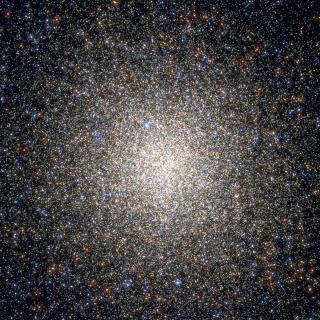Bibcode
Hidalgo, S. L.; Pietrinferni, Adriano; Cassisi, Santi; Salaris, Maurizio; Mucciarelli, Alessio; Savino, Alessandro; Aparicio, A.; Silva Aguirre, Victor; Verma, Kuldeep
Bibliographical reference
The Astrophysical Journal, Volume 856, Issue 2, article id. 125, 22 pp. (2018).
Advertised on:
4
2018
Journal
Citations
334
Refereed citations
306
Description
We present an updated release of the BaSTI (a Bag of Stellar Tracks and
Isochrones) stellar model and isochrone library for a solar-scaled heavy
element distribution. The main input physics that have been changed from
the previous BaSTI release include the solar metal mixture, electron
conduction opacities, a few nuclear reaction rates, bolometric
corrections, and the treatment of the overshooting efficiency for
shrinking convective cores. The new model calculations cover a mass
range between 0.1 and 15 M ⊙, 22 initial chemical
compositions between [Fe/H] = ‑3.20 and +0.45, with helium to
metal enrichment ratio dY/dZ = 1.31. The isochrones cover an age range
between 20 Myr and 14.5 Gyr, consistently take into account the
pre-main-sequence phase, and have been translated to a large number of
popular photometric systems. Asteroseismic properties of the theoretical
models have also been calculated. We compare our isochrones with results
from independent databases and with several sets of observations to test
the accuracy of the calculations. All stellar evolution tracks,
asteroseismic properties, and isochrones are made available through a
dedicated web site.
Related projects

Milky Way and Nearby Galaxies
The general aim of the project is to research the structure, evolutionary history and formation of galaxies through the study of their resolved stellar populations, both from photometry and spectroscopy. The group research concentrates in the most nearby objects, namely the Local Group galaxies including the Milky Way and M33 under the hypothesis
Martín
López Corredoira